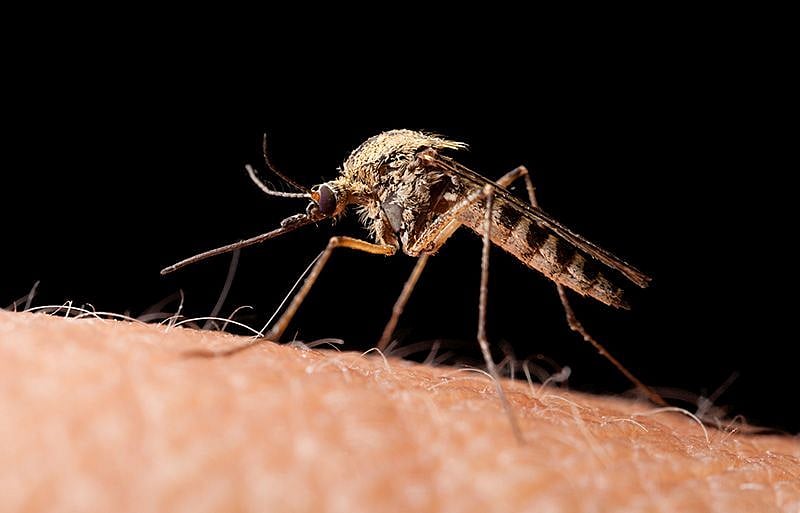Manténgase sano!

- Cara Murez
- Posted April 12, 2023
Do City Lights Mean More Mosquito Bites?
Mosquitoes appear to be affected by artificial light at night, but whether that's a good or bad thing is an open question.
New research finds that urban light pollution may disrupt the winter dormancy period of the mosquitoes that transmit the West Nile virus.
That could be good because they may not fatten up in winter, which could affect their survival. And it could be bad because they might just extend their biting season further into the fall.
The Ohio State University researchers noted that Ohio has the highest levels of West Nile virus transmission in late summer and early fall.
"If you have mosquitoes postponing or delaying diapause [dormancy] and continuing to be active longer in the year, that's at a time when the mosquitoes are most likely to be infected with West Nile virus and people could be at greatest risk of contracting it,"said senior author Megan Meuti, an assistant professor of entomology.
"We're finding that the same urban light at night can have very different effects under different seasonal contexts,"she said in a university news release.
The authors described diapause for female Northern house mosquitoes as a time of dormancy when they live in caves, culverts, sheds and other semi-protected locations.
During this period, they convert sugary sources, such as plant nectar, into fat to prepare for winter.
As the days lengthen, the females forage for blood meals so they can produce eggs. Some get West Nile virus as they feed on infected birds. They can then transmit the virus when they bite people, horses and other mammals.
In the recent research, Meuti's lab builds upon earlier studies.
One of those found that circadian clock genes differ between diapausing and non-diapausing mosquitoes, suggesting that day length dictates when diapause should start.
The other research was led by Lydia Fyie, a PhD candidate in entomology. It found that female mosquitoes exposed to dim light at night became reproductively active when they should have been dormant.
For this latest study, researchers compared daily activity and nutrient accumulation in mosquitoes reared in two lab conditions -- long days mimicking their active season and short days that induced dormancy. They did this with and without exposure to artificial light at night.
The research found that insects' activity decreases during diapause, but the circadian rhythms of that activity were sustained.
The introduction of artificial light at night affected those patterns. It influenced mosquitoes' acquisition of nutrients needed for fattening up.
The researchers found that under normal conditions, non-dormant mosquitoes had lots of stored glycogen in their bodies but the diapausing insects did not.
In mosquitoes subjected to light pollution, long-day mosquitoes accumulated little glycogen, while the short-day mosquitoes showed an increase in glycogen accumulation.
Researchers' findings suggest light pollution causes mosquitoes to ward off diapause, possibly by interfering with signals from their circadian clock.
"This could be bad for mammals in the short term because mosquitoes are potentially biting us later in the season, but it could also be bad for mosquitoes in the long term because they might be failing to fully engage in preparatory activities they need to survive the winter during diapause, and that might reduce their survival rate,"said first author Matthew Wolkoff, a PhD candidate in entomology.
The researchers plan to do field studies to investigate this further.
Study findings were published recently in the journal Insects.
More information
The World Mosquito Program has more on mosquito-borne illness.
SOURCE: Ohio State University, news release, April 10, 2023









